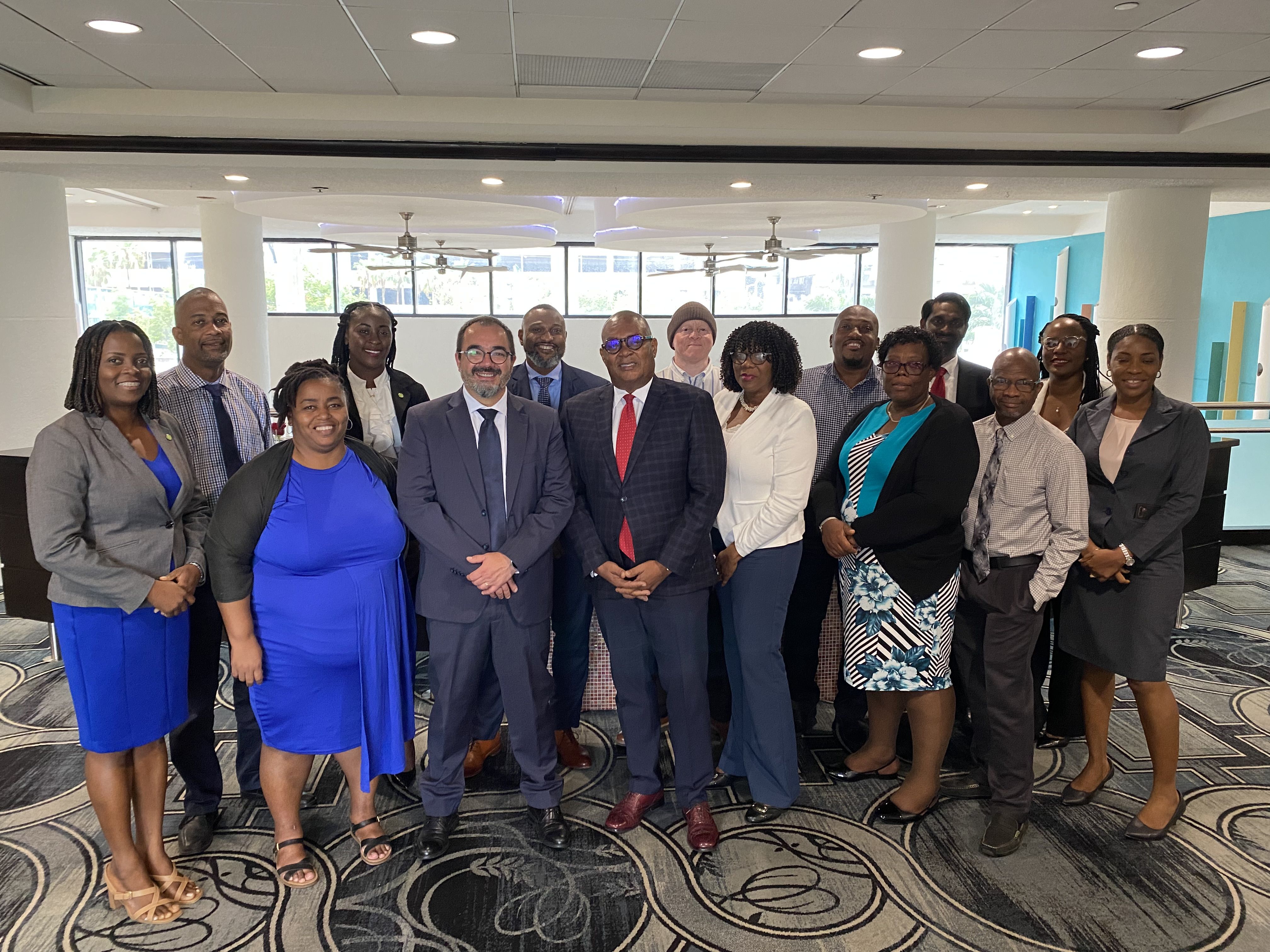A Bright Future for Data and Statistics in the OECS
OECS Media Release
The OECS Regional Data Governance Council (RDGC) convened its second face-to-face meeting from June 24-27, 2024.
The OECS RDGC was in October 2023, a deliverable of the World Bank funded OECS Data for Decision Making project and the CDB funded Enhanced Country Poverty Assessment Project.
This council is tasked with the critical objective of harmonizing data policies and practices; ensuring that economic, social, climate and environmental data are captured, produced, managed, and propagated uniformly across the OECS region.
Chaired by Ms. Kenita Paul, the meeting featured updates on Member States' Labour Force Surveys and stakeholder presentations from eCPA, OECS, CDB, ILO, ECCB, World Bank, UNITAR, UNECLAC, and FAO aimed at gaining an appreciation for available support that can be provided to member states, initiatives that could be of benefit and synergies for the development of the work plan for 2024-2026.
Mr. Elbert Ellis, Acting Advisor, Office of the President, CDB, highlighted the collaborative benefits, noting that
“CDB sees its status on the RGDC as mutually beneficial.”
The second meeting of the RDGC saw active participation from member states: Antigua and Barbuda, BVI, Dominica, Grenada, St Kitts and Nevis, and St Lucia. Delegates were attentive, engaged, and highly interactive in discussions.
Dr Didacus Jules, Director General of the OECS, emphasized the significance of the meeting, stating,
“Participating in this 2nd face-to-face meeting of the OECS Regional Data Governance Council is a very special moment for me as it signals steady progress in the construction of a regional architecture for data, data-driven analytics, and geospatial visualization in the OECS”.
The four (4) day meeting concluded with the acceptance of UNECLAC as a member (observer status) of the RDGC, marking a significant step towards broader regional cooperation; acceptance and adoption of the Revised OECS Labour Force Survey Instrument; which will be used for future Labour Force Surveys across the OECS region and the development of the RDGC work programme for 2024-2026.
Ms. Kenita Paul, Chair of the RDGC, expressed optimism for the future, saying,
“The future of statistics in the OECS region is indeed bright.”
Note: The OECS Data for Decision-Making Project (DDM) is a World Bank funded project, led by the Organisation of Eastern Caribbean States (OECS) Commission. It aims to enhance the availability and accessibility of data to facilitate informed decision-making across the region. The project benefits the following OECS Member States: Saint Lucia, Saint Vincent and the Grenadines, Grenada and the Commonwealth of Dominica.
OECS Communications Unit


